Share This
Album at a Glance
Tags
Related Posts
- Roman Statkowski (1859-1925): Piano Music / Barbara Karaskiewicz
- Orfeo(s): Italian & French Cantatas / Sunhae Im, soprano; Berlin Early Music Academy
- Walter Braunfels: Orchestral Works, Vol. 2 / BBC Concert Orchestra; Johannes Wildner
- Steve Wilson & Wilsonian’s Grain: Live in New York - The Vanguard Sessions
Music for Brass Septet, Vol. 2 - Instrumental suites from operas by Rameau, Blow, Purcell & Handel / Septura
Posted by Paul Ballyk on May 8, 2015 in Baroque | 0 comments
This album was an obvious recommendation hearing only the opening bars of Jean-Philippe Rameau's Suite from Dardanus, gracefully rendered with a sparkle and finesse that could stand easily beside any version I've heard. Musical sensibilities, tonal beauty, balance, intonation, technique... all struck me as faultless. Performing on this Naxos CD is Septura, a modern instrument brass ensemble comprised of three trumpets, two tenor trombones, one bass trombone and tuba. Each member of Septura is a principal player in a major British orchestra.
Brass players know, the richest body of music for brass ensemble was composed without any of their instruments in mind whatsoever (unless you count the trombone's dissimilar sounding predecessor, the sackbut). Music that wasn't possible for brass instrumentalists to play before valves were added to their instruments in the early 19th century, suddenly became a treasure-trove, ripe for transcription. Perhaps it's the compatible sonorities and homogeneity of tone across the entire range of the instruments, much like a viol consort, that makes the repertoire work so well for brass. Maybe it's that the music benefits from the wide dynamic range brass instruments can bring, challenged only by a pipe organ. Whatever the reason, these arrangements have been so popular, it's conceivable that more music has been transcribed from the Renaissance and Baroque eras for brass than any comparable generic reworking.
This is the second CD featuring Septura on the Naxos label. The program of the earlier release offered transcriptions of nineteenth-century choral and organ works (NXS 8573314); this release focuses on arrangements of 17th century French, English and Italian opera. Aside from Rameau's Dardanus mentioned above, there's music from Blow's Venus and Adonis, Purcell's The Curious Impertinent and Handel's Rinaldo. The music as it is presented here is intended to be enjoyed on its own terms. If you're a period performance purist, to the exclusion of all else, you'll likely want to pass (and you also probably didn't read down this far anyway).
Devoted brass music fans absolutely must not miss Septura's spectacularly virtuosic playing! However, even if you do not often listen to brass, you owe it to yourself to hear what finesse is possible at the highest level of the art.
This second volume of Septura’s brass chamber music series takes us back to the 17th century and the music of Baroque opera, in four contrasting works by Rameau, Blow, Purcell and Handel. The astounding variety in content, colour and character of the originals demands especially inventive arrangements, and these pieces are vividly brought to life by incorporating stylistic elements from ‘period performance’. The exhilarating result is a stunningly virtuosic set of new Baroque works for brass.
Source: Naxos Records
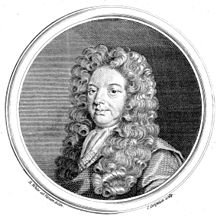 John Blow |
John Blow, composer John Blow (1649 – 1708) was an English Baroque composer and organist, appointed to Westminster Abbey in 1669. His pupils included William Croft, Jeremiah Clarke and Henry Purcell. In 1685 he was named a private musician to James II. His only stage composition, Venus and Adonis (ca. 1680–1687), was thought to influence Henry Purcell’s later opera Dido and Aeneas. In 1687 he became choirmaster at St Paul’s Cathedral, where many of his pieces were performed. In 1699 he was appointed to the newly created post of Composer to the Chapel Royal. Source: Wikipedia
|
.jpg) Henry Purcell |
Henry Purcell, composer Henry Purcell (1659 – 1695) was one of the greatest English composers, flourishing in the period that followed the restoration of the monarchy after the Puritan Commonwealth period. He spent much of his short life in the service of the Chapel Royal as a composer, organist and singer. With considerable gifts as a composer, he wrote extensively for the stage (particularly in a hybrid musico-dramatic form of the time), for the church, and for popular entertainment. He was a master of English word-setting and of contemporary compositional techniques for instruments and voices. He died in 1695, a year after composing funeral music for Queen Mary. Source: Naxos |
_-_001_rqmmewc8dsycbzfkao62o4.jpg) Jean-Philippe Rameau |
Jean-Philippe Rameau, composer Jean-Philippe Rameau (25 September 1683 – 12 September 1764) was one of the most important French composers and music theorists of the Baroque era. He replaced Jean-Baptiste Lully as the dominant composer of French opera and is also considered the leading French composer for the harpsichord of his time, alongside François Couperin. Little is known about Rameau’s early years, and it was not until the 1720s that he won fame as a major theorist of music with his Treatise on Harmony (1722) and also in the following years as a composer of masterpieces for the harpsichord, which circulated throughout Europe. He was almost 50 before he embarked on the operatic career on which his reputation chiefly rests today. His debut, Hippolyte et Aricie (1733), caused a great stir and was fiercely attacked by the supporters of Lully’s style of music for its revolutionary use of harmony. Nevertheless, Rameau’s pre-eminence in the field of French opera was soon acknowledged, and he was later attacked as an “establishment” composer by those who favoured Italian opera during the controversy known as the Querelle des Bouffons in the 1750s. Rameau’s music had gone out of fashion by the end of the 18th century, and it was not until the 20th that serious efforts were made to revive it. Today, he enjoys renewed appreciation with performances and recordings of his music ever more frequent. Source: Wikipedia |
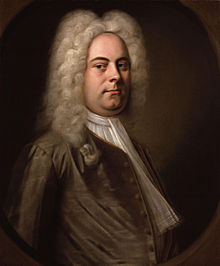 George Frideric Handel |
George Frideric Handel, composer George Frideric (or Frederick) Handel (23 February 1685 – 14 April 1759) was a German-born, British Baroque composer who spent the bulk of his career in London, becoming well known for his operas, oratorios, anthems and organ concertos. Born in a family indifferent to music, Handel received critical training in Halle, Hamburg and Italy before settling in London (1712), and became a naturalized British subject in 1727. He was strongly influenced both by the great composers of the Italian Baroque and the middle-German polyphonic choral tradition. Within fifteen years, Handel had started three commercial opera companies to supply the English nobility with Italian opera. Musicologist Winton Dean writes that his operas show that “Handel was not only a great composer; he was a dramatic genius of the first order.” As Alexander’s Feast (1736) was well received, Handel made a transition to English choral works. After his success with Messiah (1742) he never performed an Italian opera again. Almost blind, and having lived in England for nearly fifty years, he died in 1759, a respected and rich man. His funeral was given full state honours, and he was buried in Westminster Abbey. Born the same year as Johann Sebastian Bach and Domenico Scarlatti, Handel is regarded as one of the greatest composers of the Baroque era, with works such as Water Music, Music for the Royal Fireworks andMessiah remaining steadfastly popular. One of his four Coronation Anthems, Zadok the Priest (1727), composed for the coronation of George II of Great Britain, has been performed at every subsequent British coronation, traditionally during the sovereign’s anointing. Handel composed more than forty operas in over thirty years, and since the late 1960s, with the revival of baroque music and historically informed musical performance, interest in Handel’s operas has grown. Source: Wikipedia |
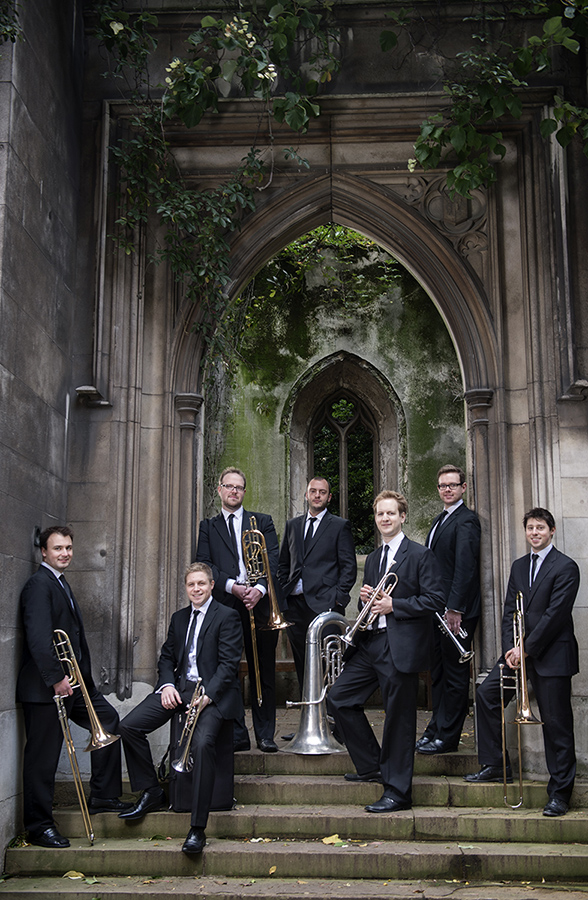 Septura |
Septura Brass Ensemble Septura aims to redefine the brass ensemble as a serious artistic medium by creating a canon of classical art-music for brass septet, through transcriptions, arrangements and commissions. Currently ensemble-in-residence at the Royal Academy of Music in London, the group is recording a series of discs for Naxos, each of which explores a different period and genre of classical music. The groupʼs members are the leading players of the new generation of British brass musicians, holding principal positions in the London Symphony, Philharmonia, Royal Philharmonic, BBC Symphony, City of Birmingham Symphony, Scottish Opera and Aurora orchestras. The group shares a passion for live performance, and believes in the idea of the concert as a real event, drawing people into its (perhaps unfamiliar) ever-increasing repertoire with imaginative and interesting programming, built around strong concepts and themes, and presented in a captivating manner. Septura is represented worldwide by Percius. Source: Naxos |
![]() About Paul Ballyk
About Paul Ballyk
all about Paul
Twitter •
| Thinking about purchasing this album?
Follow this link for more album details or to make the purchase. Buy it now |
“Not just recommended. Guaranteed.”
We stand behind every album featured on Expedition Audio. Our objective is to take the monetary risk out of music exploration. If you order this album from HBDirect.com and do not like it you can return it for a refund.
Handel: Suite from 'Rinaldo' for Brass Septet / Septura





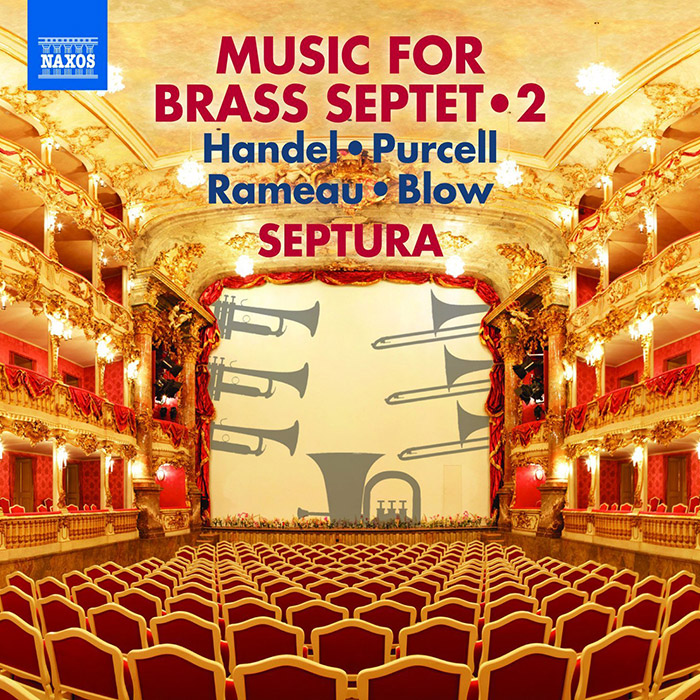
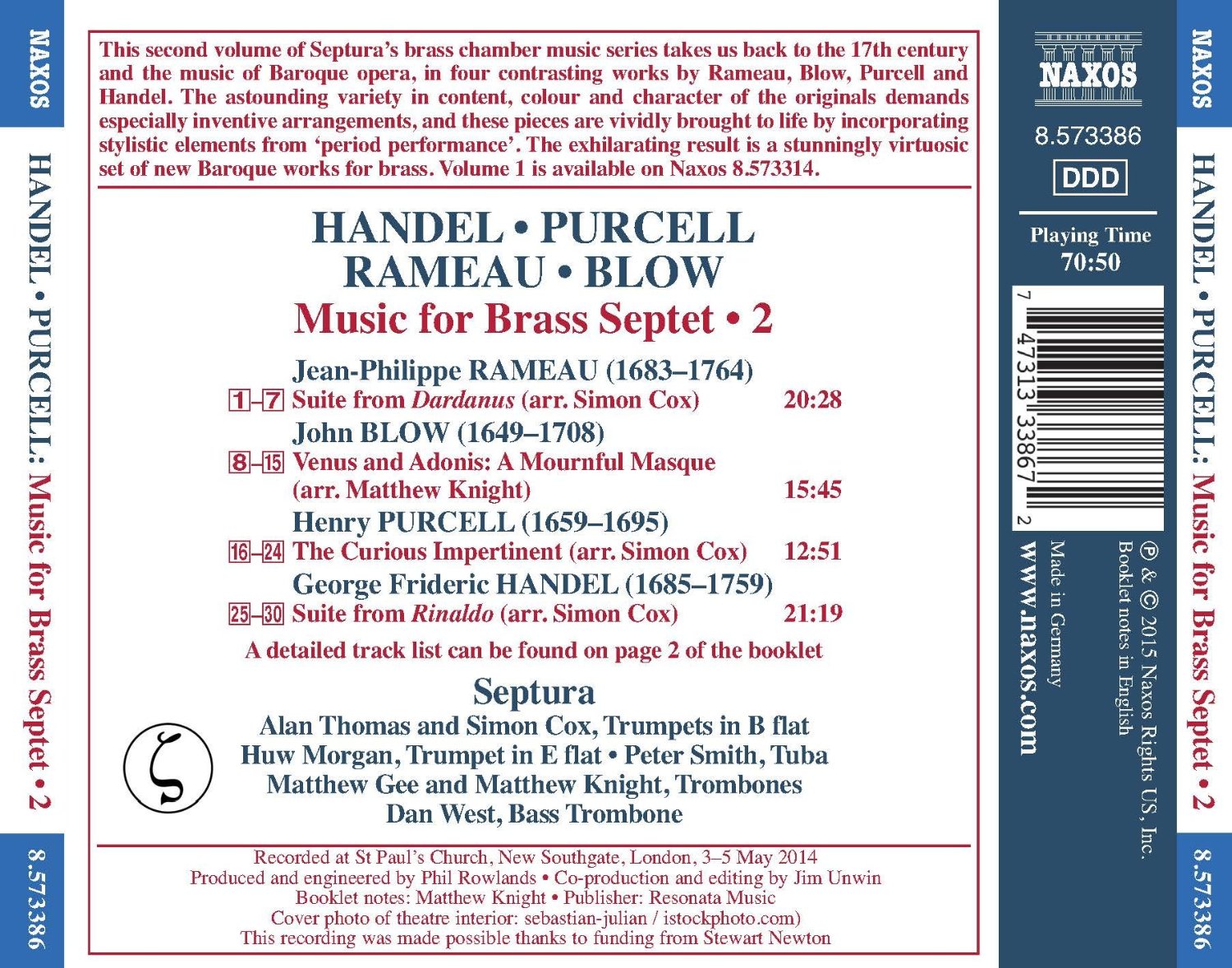

0 Comments
Trackbacks/Pingbacks